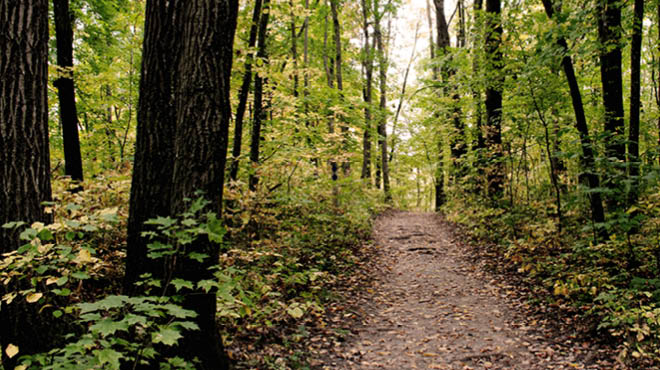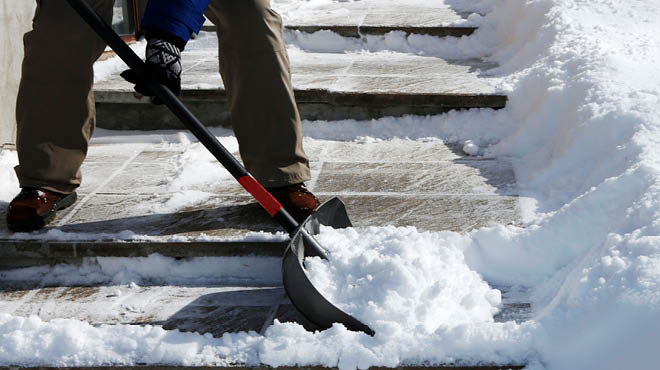Recent Posts
Tips for making safety part of your summer fun

Summer is officially underway. With more time spent outdoors comes more opportunities for injuries, many of which are preventable. Don't let an injury bring your fun in the sun to an end. No matter the activity, make sure you and your family know what it takes to stay safe.
Sun safety
After a long winter, it's easy to forget the strength of the summer sun.
To protect yourself from skin cancer and sunburn:
- Apply an appropriate amount of broad-spectrum sunscreen according to the directions. Remember to apply sunscreen to easy-to-forget areas like the back of your neck, tips of your ears and tops of your feet.
- Wear a hat, sunglasses and ultraviolet (UV) light-blocking clothing.
- Avoid sun exposure between 10 a.m. and 4 p.m. — even on cloudy days — when the sun is at its peak.
Skin safety
Summer increases your chance of tick bites, insect stings and rashes from plants.
To protect yourself:
- Wear shoes, not sandals; long pants tucked into your socks; a long-sleeved shirt; a hat; and gloves when outdoor activities take you into an area where there may be ticks.
- Stay on designated trails when possible, and avoid walking through low bushes and long grass.
- Use insect repellents with at least 20% DEET. Repellents with up to 30% DEET can be applied to children over 2 months old. Apply to clothes and exposed skin but avoid your hands.
- Before taking a drink from an opened beverage, inspect cans and straws to make sure your drink hasn't attracted a stinging insect.
- Mowing the lawn or trimming vegetation could disturb a beehive or wasp nest, so be aware of your surroundings.
- Avoid contact with poison ivy, sumac or oak. Itching, reddening of the skin, blisters and hive-like swelling usually begins within 48 to 72 hours after exposure.
Vehicle safety
Wheel into summer, but do it safely. Each year in the U.S., bicycle accidents account for 130,000 emergency department visits; skateboards, 200,000 visits; ATVs, 100,000 visits; and motorcycle accidents, 82,000 visits.
To ensure a safe ride:
- Wear a helmet while on all wheeled vehicles, including ATVs, motorcycles, bicycles and skateboards, or when horseback riding. A helmet can reduce serious head injuries by up to 80%.
- Check your child’s helmet for a proper fit.
- Adults should set a good example by wearing their helmets while biking or skating.
- Follow seating guidelines on ATVs, and use seatbelts when available on these vehicles.
- Read the manufacturer's guidelines for age and weight requirements on bikes or ATVs.
- Supervise ATV riders younger than 16.
- Don't drink alcohol before or during your time using wheeled vehicles.
Lawn and yard safety
Yard work is a regular activity during the summer. Each year, however, about 9,000 children in the U.S. end up in the emergency department with lawn-mowing injuries.
Follow these tips for yard safety for all ages:
- Avoid mowing on steep banks when the lawn is damp or when there's not enough daylight.
- Clear the mowing area of any objects such as twigs, stones and toys that could be picked up and thrown by the lawnmower blades.
- Wear ear and eye protection, long pants and closed-toed shoes when mowing.
- Make sure children are physically capable of using a lawnmower. The American Academy of Pediatrics recommends children be 12 or older to operate a push mower and 16 or older for a riding mower.
- Never touch the lawnmower blade with your hands or feet, even if the engine is off.
- Store lawn chemicals and pesticides in their original containers and out of reach of children. Read the labels for instructions on using and disposing of chemicals.
- Wear a helmet, safety glasses and ear protection when cutting wood or trimming trees.
- Consider hiring someone to do jobs at high risk for falls or injuries, such as climbing ladders, carrying fertilizer or seed bags, cleaning out gutters or trimming trees.
Water safety
Every year in the U.S., about 4,000 people die by drowning. Children, men and nonwhite people are at the highest risk. More than 70% of water recreation deaths are related to alcohol use.
To stay safe on the water:
- Always wear an approved flotation device when on or near the water.
- Don't drink alcohol and drive a boat or personal watercraft.
- Encourage swimming readiness by enrolling children in swim lessons.
- Keep pool gates closed at all times, and consider an alarm to alert you if the gate is opened.
- Before diving into a body of water, know the water depth and if there are any underwater obstacles.
- Supervise children when they're swimming, and stay close enough to reach out to the child at any time.
- Don't go swimming alone.
Food safety
Safe summertime food handling can reduce your risk of food poisoning.
Follow these steps:
- Wash your hands. If soap and hot, running water are unavailable, clean your hands with disposable hand wipes before and after working with food. Remember, pets can carry germs, so don't go directly from petting the cat to paring potatoes.
- Cook food thoroughly. Make sure fish, poultry and other meats are safely thawed in the refrigerator before cooking. Many raw foods, especially poultry and other meats, can harbor bacteria. Follow preparation recommendations for cooking temperatures to be sure meats and seafood are cooked all the way through.
- When grilling, avoid using the same platters or utensils for uncooked and cooked meats.
- Keep utensils and food covered until serving time, because flies, other insects and pets can carry germs or salmonella.
Farm safety
Farms are busy places during the summer.
Keep your family and visitors safe with these tips:
- Avoid baggy clothing, loose jewelry or long hair when near moving equipment.
- Before moving machinery, make sure all children and adults are clear of the wheels.
- Don't allow children to ride on tractor fenders or trailers.
- Make sure safety shields, roll bars or guards are securely installed.
- Supervise children near animals.
- Turn equipment off before making repairs or adjustments. Don't reach into equipment while parts are moving.
- Use safety glasses, noise protection and other precautions, including masks when using chemicals and pesticides.
General summer safety
Follow these additional tips:
- Stay hydrated when the temperature and humidity are high. Avoid alcoholic or caffeinated beverages on hot days because they don’t provide necessary hydration for your body.
- Supervise children when they’re on trampolines or playground equipment.
- Handle fireworks safely.
While we hope you don't need us, Urgent Care, Express Care and Emergency Department services are here if you do.
Remember, most injuries are preventable. Incorporating these precautions into your daily life will help you avoid life-altering accidents. Enjoy your summer and be safe.
By Mayo Clinic Health System staff





